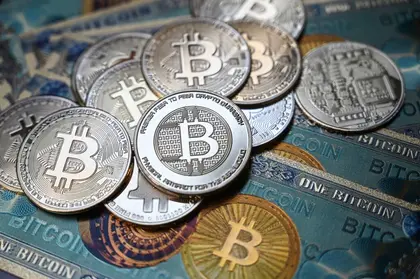A draft law legalizing and regulating cryptocurrency and other virtual assets like tokens in Ukraine has passed the parliament in the second reading on Sept. 8.
A total of 276 Ukrainian lawmakers voted for the bill.
Cryptocurrencies have been neither legal nor forbidden in Ukraine because there were no laws that defined them. Ukrainians could buy and exchange virtual currencies, but local courts couldn’t protect them if something went wrong.
If signed by President Volodymyr Zelensky, the law will protect the owners of virtual assets and exchange platforms from fraud. It will also determine how Ukraine will regulate the cryptocurrency market in the future.
Ukraine plans to open the cryptocurrency market for businesses and investors by 2022, a pressperson from the Ministry of Digital Transformation told the Kyiv Post, but the parliament has to pass a set of laws and amend the Tax Code and the Civil Code first.
The bill approved on Sept. 8 is crucial in this process, experts said. It defines virtual assets as intangible assets expressed in a form of electronic data. It also explains what a wallet for virtual currency and a private key is — these terms have never been used in Ukraine’s legislation.
Although virtual assets are now legitimate in Ukraine, Ukrainians cannot use them as a means of payment or exchange for goods or services — only the official national currency, the hryvnia, has this power. However, Ukrainians can own, exchange and trade cryptocurrencies using local or foreign exchange platforms registered in Ukraine.
The law on virtual assets allows crypto businesses to work officially in Ukraine and pay taxes here. To register a crypto business, a company needs to prove that it is transparent and has an excellent reputation. The permission to start a business costs over $3,100. To prevent profit laundering and financial terrorism, crypto businesses have to declare their activity to the state.
Ukraine’s Ministry of Digital Transformation, as well as the National Bank of Ukraine and the National Securities Commission, are the main regulators of the virtual assets market, according to the law. The government also wants to create another regulator that will issue permits for crypto companies in Ukraine.
After passing the set of laws that regulate cryptocurrency and other virtual assets Ukraine wants to make this market more transparent and attract investment to the country.
Cryptocurrency is hugely popular among Ukrainians — the daily turnover of virtual assets in the country accounts for $37,000, according to Mykhailo Fedorov, Ukraine’s Minister of Digital Transformation. If cryptocurrency becomes legal and therefore safer, more Ukrainians will invest in it, Fedorov said.
“Only a few countries in the world have legalized crypto assets — Germany, Luxembourg, Singapore. Ukraine will be one of them,” he added.
Recognizing cryptocurrency is vital for the booming industry, experts said. “It will reduce stereotypical attitudes towards cryptocurrencies and will help them to become normal financial instruments,” according to Oleg Kurchenko, CEO of virtual asset exchange platform Binaryx.
However, experts are worried that too many rules could stifle innovation and put pressure on businesses. Some crypto investors could leave the country because they do not trust state initiatives, Kurchenko told the Kyiv Post.
Those who opt to stay hope that new legislation will reduce the number of unjustified raids on crypto businesses initiated by Ukraine’s Security Services. Ukrainian law enforcement agencies deem virtual money a scam and conduct raids of the businesses, often confiscating expensive equipment without any grounds.
The country doesn’t have a state register of data centers used for crypto mining yet, thus many specialists work in shadow or move abroad to avoid raids.
According to Fedorov, the new law will change this. “Favorable conditions will allow companies to register in Ukraine, rather than abroad. The entrepreneurs will pay taxes to the budget, but will be protected by the state,” he said.
You can also highlight the text and press Ctrl + Enter




